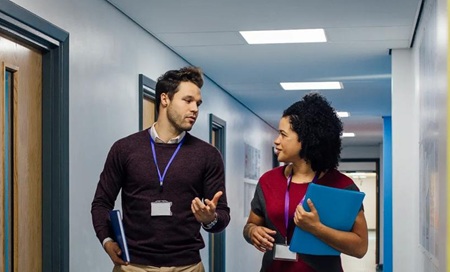KEF (Knowledge Exchange Framework)
Knowledge is power, and this is true when we talk about KEF (Knowledge Exchange Framework). But why is this the case, and why is KEF so important to the higher education sector?
Knowledge is power, and this is true when we talk about KEF (Knowledge Exchange Framework). But why is this the case, and why is KEF so important to the higher education sector?
Like any business, Higher Education Institutions (HEIs) require cash to operate. First and foremost, this means meeting the core business goal of providing teaching and education to individuals, together with all the added-value services needed to enhance the ‘student experience’ and consequently rank high on student satisfaction. High student satisfaction equals higher recruitment more cash on tuition fees, students, and a healthy bank balance to support an HEI’s pedagogical offering.
Secondary to this, HEIs are incubators for research and innovation, developing entrepreneurs and world leaders of the future and supporting the social, economic and political fabric of our society. The KEF is one mechanism used to benchmark HEIs’ success in carrying out some of these non-core activities. The KEF is ultimately a set of performance criteria by which HEIs are measured. It relies on the input of quantitative data via the HEB-CI (Higher Education Business and Community Interaction) survey. An example of such data required by HEB-CI might be the number of patents filed or granted, or the amount of income received under technology licenses. HEIs who do this well or perhaps, more importantly, who capture their data well will be rewarded with money via HEIF (Higher Education Innovation Funding). HEIs will then be able to pursue further opportunities to demonstrate their engagement with the wider world.
The KEF problem
At the heart of the KEF problem is the fact that HEIs need to have robust data-capture systems in place and ensure that data is inputted correctly for each project. An example of where data capture could be helpful is research and development (R&D) collaborations. These can be overlooked when considering KEF, and HEIs often don’t consistently record data relating to them (e.g. value). Further, R&D typically falls under the research heading and is swallowed up in the REF (Research Excellence Framework), another framework where HEIs are scored on the quality or impact of their research. There is clearly an overlap between the KEF and REF.
By way of an example, an HEI may enter into an R&D agreement with industry to resolve a particular problem in a production line. The industry partner provides some funding but the HEI carries out its part as in-kind contribution. The HEI is comfortable with this because it is able to publish. Many HEIs will mark this work as ‘research’ and not necessarily consider it relevant for KEF. But HEIs fiercely negotiate intellectual property ownership and exploitation clauses in these R&D agreements. Intellectual property rights are inherently industrial rights. There is clearly a KEF element to many of these R&D agreements tabbed as research.
If “Knowledge” can be defined as:
“facts, information, and skills acquired through experience or education” or “the theoretical or practical understanding of a subject”, and
“Exchange” can be defined as:
“an act of giving one thing and receiving another”
then, in the above example, the HEI negotiated itself a royalty-bearing licence in return for imparting its knowledge. This surely is squarely within the meaning of ‘knowledge exchange’ and if the HEI is not counting it as such, is the HEI limiting itself? For example, it is not known how often these fiercely negotiated IP clauses are revisited by HEIs for the purposes of asserting their right to receive a royalty. To address this, HEI’s should consider undertaking an audit of their R&D agreements to identify those which have a strong knowledge exchange element and record them as such for the purposes of KEF. It is possible this audit will identify rights which could be asserted, and which may result in further examples of knowledge exchange.
There are many other examples of valuable knowledge exchange activities between HEIs and business, public and third-sector organisations, community bodies and the wider public. All of these have potential value to the KEF.
Practice points
- For future purposes: design and implement information systems and processes for capturing quantitative data required by the HEB-CI report.
- For historical projects: carry out an audit of a sample of ‘research’ agreements for the purposes of identifying knowledge transfer activity which can be counted under HEB-CI and categorise any qualifying projects under the appropriate KEF activity.
Contact

Mark Hickson
Head of Business Development
onlineteaminbox@brownejacobson.com
+44 (0)370 270 6000








































